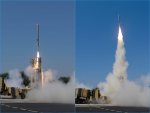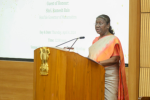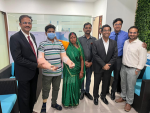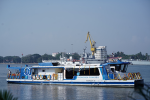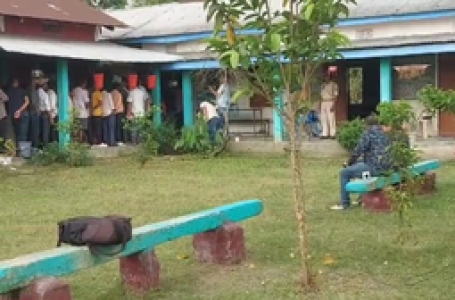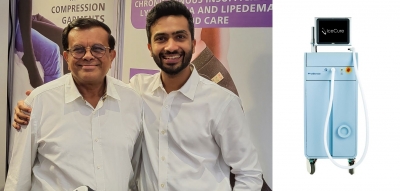
Mumbai: In a new development in cancer treatment, a Mumbai company has brought the Cryoablation technology from Israel to give a precise, cold-blooded death to most kinds of tumours and/or cancers.
Billed as a ‘non-surgical, next-gen’ technology of IceCure Medical, Israel, its flagship machine “ProSense” has been introduced in India by NovoMed Incorporation Pvt. Ltd. Mumbai.
Cryoablation ‘ProSense’ is currently installed in four hospitals across India and has given ‘highly encouraging’ results with thousands of cancer patients for the ease of treatment and better pain management.
They are: Tata Memorial Centre Hospital and Picture This By Jankharia, (both institutions in Mumbai), the NH-Rabindranath Tagore International Institute of Cardiac Sciences (Kolkata) and Kovai Medical Center & Hospital, (Coimbatore, Tamil Nadu).
Explaining the treatment, NIPL Director Jay Mehta said that Cryoablation is a minimally invasive image guided (ultrasound or CT-Scan) treatment that uses extreme cold to freeze and accurately destroy diseased tissue within the tumour zone, quickly and causing bare minimum pain to the patient.
“It used liquid nitrogen (LN2) for maximum freezing, safety and efficacy. For Cryoablation, a thin, needle-like probe called a cryoprobe is inserted into the target area. The cryoprobe used the LN2 as a coolant, which rapidly cools the surrounding tissue,” said Jay Mehta.
NIPL Managing Director Nainesh Mehta said that as the tissue freezes, ice crystals form, causing cellular damage and destruction� with the extreme cold temperatures freezing and killing the abnormal cells to treat the patient.
“Cryoablation has several advantages over other treatment methods. It requires just a small incision or a needle puncture, results in less trauma to the patient and enables faster recovery compared with open surgery, can be performed under local anaesthesia in most cases, and since it is precise and targeted at the abnormal tissue while preserving the surrounding healthy tissues, it eliminates hospital stay for most patients,” elaborated Nainesh Mehta.
The Mehtas say that it is used for treating benign or malignant tumours of the breast, kidney, liver, lung, bone, soft tissues, skin, etc., and the specific application of Cryoablation depends on the condition being treated.
Mumbai’s Kokilaben Dhirubhai Ambani Hospital Interventional Radiologist Dr Vimal Someshwar said that not only have the results on patients been very good, Cryoablation is also considered excellent for pain management, and the technology has a tremendous potential for wider deployment.
Consultant Radiologist Dr Jankharia in the city said that Cryoablation fills a niche in the overall ablation space and is best for fibromatosis, specific bone and soft tissue tumours, besides liver and lungs.
“While Radio Frequency Ablation has been in India for over two decades and Microwave has slowly established itself in the past five years, Cryoablation is a recent entrant but giving very good results,” he said.
The Mehtas contend that Cryoablation is a “futuristic and revolutionary technology in India” which the people can take maximum advantage of to freeze and kill the cancer.
IANS



